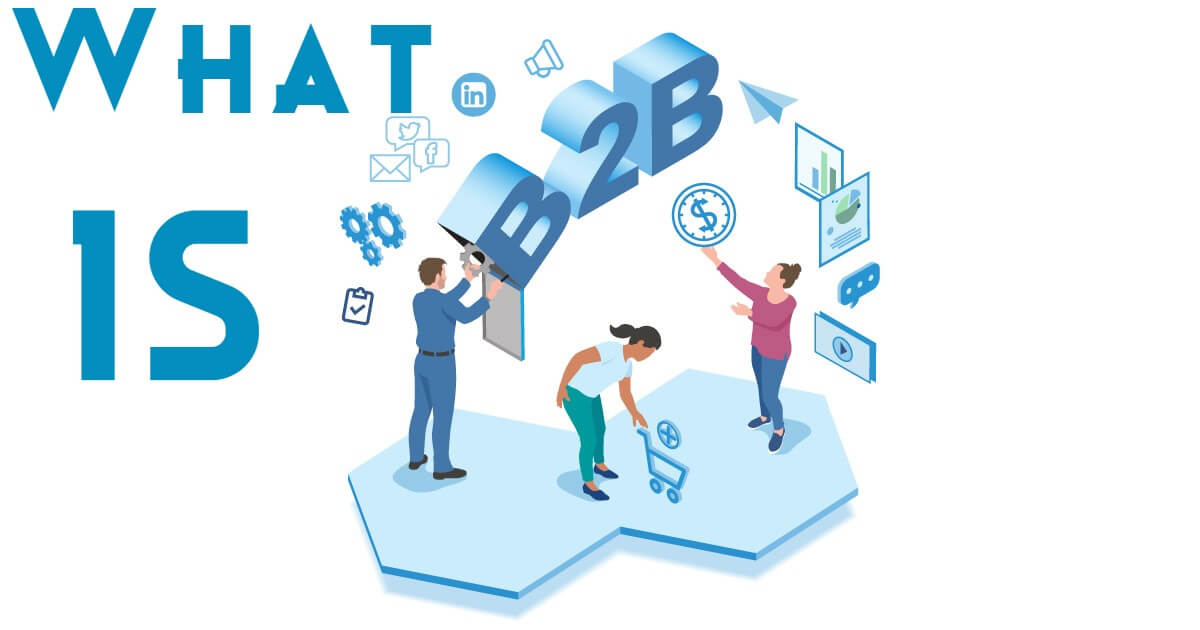What is B2B - varieties and differences
B2B sales are such an organization of the trading and marketing activities of a company that is focused not on a private consumer, but on interaction with other enterprises. In this way, organizations expand their contacts, find new suppliers, and increase the number of customers. The main task of B2B Systems is to improve the efficiency of communication in the market.
Types of B2B sales
There are several classifications of B2B Sales. One of the main criteria is the type of product. So, can be sold:
Goods . Dealerships and distributors can participate in such transactions. Typically, selling organizations act as intermediaries between manufacturers and wholesalers;
Products . The buyer is offered a comprehensive solution consisting of the product itself and offers aimed at its service;
services . Corporate clients often use developments in the areas of coaching, legal / accounting business support, etc.
The B2B sales system is distinguished by the passage of more stages, the length of the period for making the final decision, and the complexity of negotiations.
Depending on the client's readiness to make a purchase / conclude a contract, sales are distinguished:
Transactional . Their peculiarity lies in the fact that the consumer has actually already made a decision about what product he needs, and does not need the seller's advice. In such cases, the role of the latter is reduced to the execution of the transaction;
advisory . In such sales, the seller takes the position of an expert who can understand the needs of the buyer and offer the product that best suits the request.
Recently, the role of expert transactions has been growing, in the process of which the seller discovers not only the current problems of the buyer, but also potential ones. The emphasis on the value of the selling company for the client helps to strengthen business contacts between enterprises.
The main differences between B2B and B2C sales
Depending on the type of end customer, B2B (Business-to-Business) and B2C (business-to-customer) sales are distinguished. In the latter case, the goods are purchased for their own use. B2B is the use of the purchased product primarily for making money. The main differences between these types of sales are based on the following parameters:
way of selling goods . B2B transactions are made less frequently, but for large amounts, which allows the company to operate for several months in advance. With B2C, sales are made often, but in much smaller volumes;
making a purchase decision . Work in the field of B2B involves calculating the prospects of the upcoming transaction, its rational assessment, analysis of the price / quality ratio, and so on. And purchases by the end consumer (B2C) are often made spontaneously, based on subjective decisions;
marketing strategies . Since the motives for purchasing goods in different segments differ radically, the ways of interacting with potential customers will be different. In the B2C segment, the emphasis is on meeting the specific needs of the buyer, and in B2B - on making a profit from the resale of a product, with its participation in the production chain, or as an element of improving business processes.
The most important difference between B2B interaction is its precision, an individual approach to each client (the sales models in this segment are described in detail in the material “Features of the promotion of B2B sites").
What parameters affect sales in the B2B segment
Experts note that the main parameters that have a great impact on the conduct of B2B sales are:
- The industry in which the company operates;
- Product features;
- The use of certain sales channels.
Working in a particular industry dictates its own rules. In particular, if the market niche in which sales are conducted is highly competitive, then you should pay attention to the formation of USP with a clear detachment from other market players. To implement a long-term strategy, it is important to take into account the threats and influences of a particular industry, use the analysis of 5 competitive forces by M. Porter or other methods.
The products sold in the B2B segment are very different from each other. Some of them can be used almost immediately after purchase, some are part of the subsequent technological process, in some cases after-sales service will be required.
The way the product is delivered to the market will also be different. For B2B sales, these are:
- Corporate;
- Dealer;
- Distribution;
- Retail.
Taking these parameters into account is necessary when developing a business promotion strategy.
